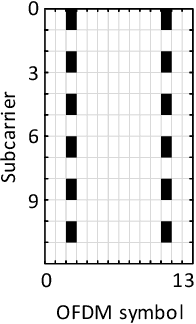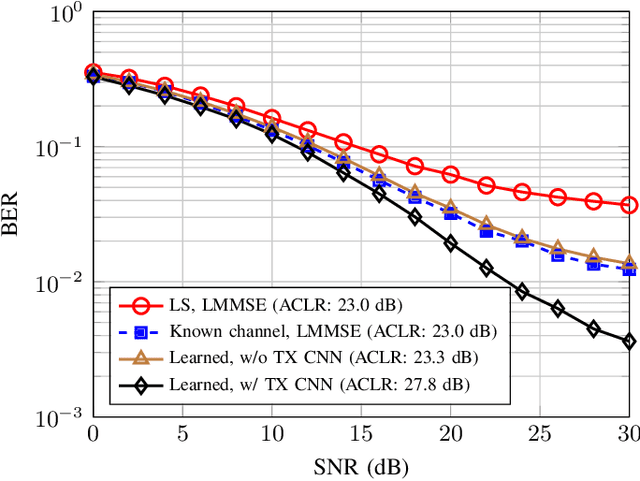Waveform Learning for Reduced Out-of-Band Emissions Under a Nonlinear Power Amplifier
Paper and Code
Jan 14, 2022



Machine learning (ML) has shown great promise in optimizing various aspects of the physical layer processing in wireless communication systems. In this paper, we use ML to learn jointly the transmit waveform and the frequency-domain receiver. In particular, we consider a scenario where the transmitter power amplifier is operating in a nonlinear manner, and ML is used to optimize the waveform to minimize the out-of-band emissions. The system also learns a constellation shape that facilitates pilotless detection by the simultaneously learned receiver. The simulation results show that such an end-to-end optimized system can communicate data more accurately and with less out-of-band emissions than conventional systems, thereby demonstrating the potential of ML in optimizing the air interface. To the best of our knowledge, there are no prior works considering the power amplifier induced emissions in an end-to-end learned system. These findings pave the way towards an ML-native air interface, which could be one of the building blocks of 6G.
 Add to Chrome
Add to Chrome Add to Firefox
Add to Firefox Add to Edge
Add to Edge